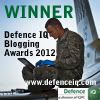
This really is a first class book. Ordinarily, I would argue that it is very difficult to write history, in particular military history, until at least thirty years have passed. Sometimes events that happened relatively recently are very difficult to analyse, without the benifit of sufficient hindsight. But here Tim Ripley has given a first class exposition of one of the most controversial conflicts of modern times.
Ripley goes into incredible detail, and I am sure that his description of the air war in particular will be new to most readers. I for one had no idea what aircraft were operating where over Afghanistan. Pointedly, the US Navy had to move two aircraft carriers to the Pakistan coast, as there were no suitable usable airfields in the surrounding countries. Hence most of the tactical aircraft flying on Enduring Freedom were US Navy. But of course, we know that Aircraft Carriers are a luxury, because our leaders and betters tell us so (irony!).
One area in which the US did perform very well in 2001 and 2002 was the integration of Defence and intelligence. In this scenario, Central Command worked almost seamlessly with the CIA, who had significant experience in Afghanistan. The use of technology by the US was also an incredible force multiplier. The Taliban simply had no answer to the UAV’s such as the Predator, and could not hide from the satellite technology and high tec communications that enabled the US to fight in a way that the Taliban could never counter.
The complex social fabric of Afghanistan is absolutely crucial to understand. Made up of a veritable patchwork quilt of tribes and ethnic backgrounds, its not surprising perhaps that Afghanistan has spent the majority of its existence in some kind of upheaval. The tribal loyalties in particular are something that Ripley does well to describe. Even then, I had trouble keeping track of all of the different forces at play, particularly as tribes could change their loyalties at the drop of a hat. In a similar manner, Pakistan’s President Musharaf seems to have been playing the US. Pakistan had supported the Taliban prior to 9/11, and only switched sides when threatened with dire consequences by the US. But Pakistani forces did very little to secure the Afghan border, and then handed over hundreds of supposed prisoners, who it rapidly transpired were not terrorists or illegal combatants at all.
One thing that does emege, and confirms my impression, is that Donald Rumsfeld was completely inept as Secretary of Defence and, looking back, seems to have got almost all of the major calls wrong, basing his decision making on neo-conservative ideals rather than the strategic or tactical realities. This was a worrying trend that continued into the Iraq Invasion in 2003.
Ripley’s closing argument is that in some respects, the apparent success of operations in Afghanistan in 2001 and 2002 was really a hollow victory. Yes, Bin Laden was on the run and the Taliban fell. The US Forces and their allies had won the war, but thanks to Rumsfeld’s intellectually bankrupt policies, they lost the peace. With more sensible humanitarian and infrastructure work, the kind of troop deployments required from 2006 onwards – such as the British Army’s bloody campaign in Helmand – would have been un-necessary. The momentum was lost, as Iraq took up everyone’s attention.



